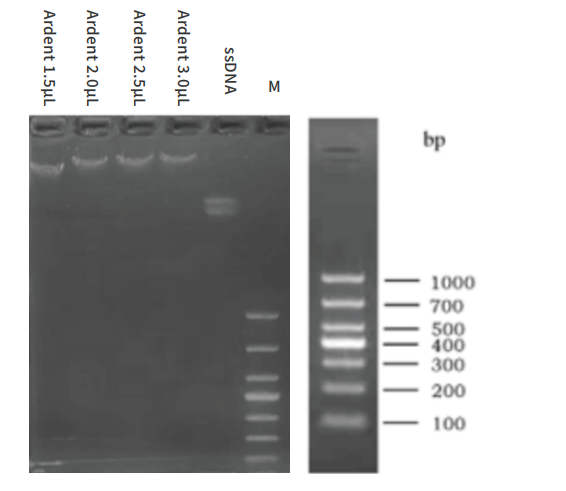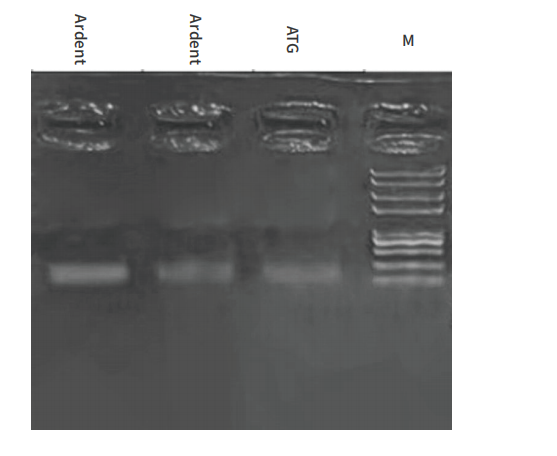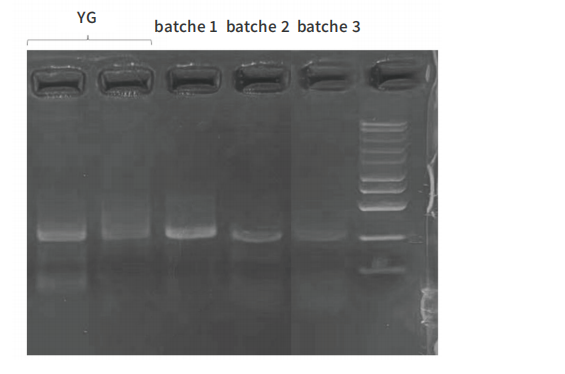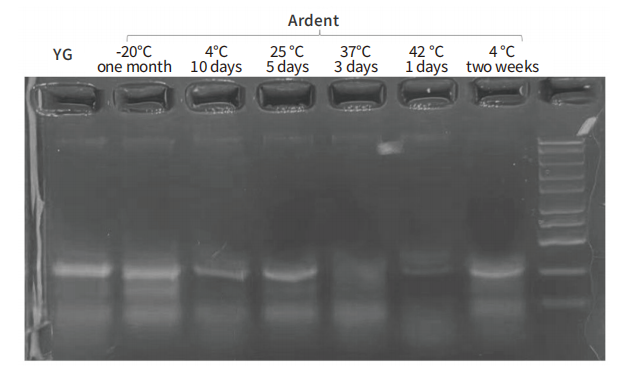
Highly Competitive Performance - High Throughput, Excellent Sample Preservation Rate & Detection Sensitivity

5mg/mL
Stored at: -20℃
REF GSP9601 Spec: 100μL(0.5mg)
GSP9602 200μL(1mg)
GSP9603 500μL(2.5mg)
GSP9604 1000μL(5mg)
T4 Gene 32 Protein is a single-stranded DNA (ssDNA) binding protein required for bacteriophage T4 replication and repair. It cooperatively binds to and stablizes transiently formed regions of ssDNA and plays an important structural role during T4 phage replication. It also has been used extensively to stabilize and mark regions of ssDNA for electron microscopic examination of intracellular DNA structures. Recently, it has been shown to improve restriction enzyme digestion, improve the yield and efficiency of reverse transcription (RT) reactions during RT-PCR, enhance T4 DNA polymerase activity, as well as increase the yield of PCR products.
High purity, SDS-PAGE electrophoresis ≥ 90%
Strict residue control and guaranteed product quality
Good stability, not cleaved by endonucleases
Stabilize and mark regions of ssDNA
Improve the yield and efficiency of reverse transcription (RT) reactions during RT-PCR
Increase the yield of PCR products
Enhance T4 DNA polymerase activity
Improve restriction enzyme digestion
1. T4 Gene32 protein can effectively bind to ssDNA

Fig. 3000 bp ssDNA was used as gel block phenomenon, and T4 Gene32 protein of Ardent was added to block phenomenon
2. Enzyme activity is basically consistent with well-known domestic brands

Fig. By conducting a constant temperature rapid amplification reaction, the target fragment can be amplified
3. Excellent stability between batches

Fig. By conducting a constant temperature rapid amplification reaction, the target fragment can be amplified. Three batches are stable
4. Good stability

Fig. By conducting a constant temperature rapid amplification reaction, the target fragment can be amplified. It can be left at room temperature for five days